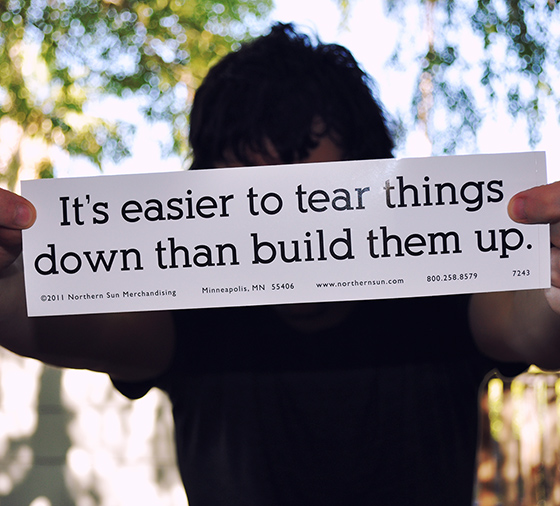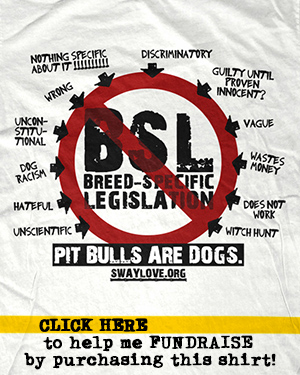This past week I was fortunate enough to sit in on a Town Hall meeting about poverty that was hosted by Tavis Smiley. He brought in 5 different panelists and there was some really interesting information shared all around. Smiley is someone who comes at issues in a very genuine way and can take part in a dialogue at any time, no matter the party affiliation or differences in opinion of those that he may be talking with. That’s a great quality. In my eyes we seem to learn the most when there is a kind of friction of ideas, and the working through of those ideas, instead of just some lauded person being surrounded by his or her yes-men.
Poverty. What does it look like? What manifests out of it? These are extremely crucial elements and to attempt to solve anything you damn well need to attempt to account for these realities. I’m all for personal responsibility but there is also a thin line that surrounds this concept. We really need to be careful not to turn “personal responsibility” into a soundbite that just comes out in the form of a standard defense mechanism. Meaning, we cannot just flippantly condemn poor people for not taking responsibility if they were only given very few options that would ever pass for “responsible” in the first place. Our lives are all not the same. Each of us live very dynamic lives and it would be the kind thing to do if we could empathize with another person prior to moving to criticize them. By any standard I’m financially poor myself, but I also know that I’m better off than certain folks as well… If not in direct funds available then at least in direct support from engaged family and/or friends. I’m a lucky person, regardless of my real financial hardships that I do face. So with all of that, when I’m down I hope that I’m not kicked, and it’s because of that rule that I really try not to kick others.
What we find ourselves in the middle of today is that less than 1% of our country’s population owns over 40% of the nation’s wealth. A little over 400 individual people in America have a totality of wealth that is equivalent to the bottom 150 million people! 150 million people is half of the country. That half of the country is in or near poverty. This is data taken directly from the United States Census Bureau. By “near” they mean a couple of paychecks away… To give further context to this topic, we need to look at how arcane and out of touch the actual poverty level is ($23,000 for a family of 4), when aligned with living in certain areas of today’s United States. That whole thing might need some updating. Yet this debate, if there ever even is a debate, is always framed to seem like this only affects a small portion of us, as if it’s not relatable and thus not worth making a fuss over. That’s not okay.
For instance, Smiley talked about how nearly 30% of the Californians who are officially living in poverty actually live in Los Angeles County. They matter, their pets matter. We should be showing them support and not indifference or condemnation. This was a great quote that I wanted to include…
It used to be that in California what we did in public policy either cast a long shadow or a long sunbeam across the nation. It used to cast a long sunbeam. So much of what we are doing now is casting a long shadow across the country.
Here’s some pertinent statements from Marqueece Harris-Dawson of Community Coalition…
You look at a community like South Los Angeles. The number 1 employer is the school districts, the city, and the county, and in that order. All of those institutions, for the last 10 or 15 years, they’ve hired virtually no one.
So historically we have an income support system called welfare, and then we stopped that and we said now you have to go to work, except at the same time what we’ve done is that we’ve allowed companies to hire workers and then pay them in a way where government still has to subsidize that family.
We have this idea that we’ve let creep into our government that is actually very dangerous: Every work/job has to be worth more than what we are paying the worker. As long as you have that as an ideal, especially as the rate of profit goes down and down and down, you’ll have a situation where people will be working for things hardly called wages.
^Working may no longer be enough to raise certain people out of poverty. That is a problem. The lack of a living wage. Does that explain everybody or everything? Hell no. But if you think that that isn’t a current reality for some folks out there then you are kind of fooling yourself.
This came from Jonathan Fielding, director of the Public Health Department for L.A. County…
Poverty is a universal poison. We think of lead poison as bad in such a way. Poverty is an environmental poison. It’s a poison for everybody, because if you look at the impact of this poison it equates to higher healthcare costs, higher welfare payments, higher unemployment insurance. It’s causing a tax on everybody else, and so you should feel as though you have skin in the game. Why is the average life expectancy 85 in Brentwood and only 72.8 in Watts, which is just 20 minutes across town?
Well, there’s definitely a connection to poverty and poor health, just like there’s a connection to poverty and crime, just like there’s a connection to poverty and incarceration, and just like there’s a connection to poverty and how someone may treat an animal. That’s not to excuse any of it, just to point out that there’s a connection. At what level? I don’t know, but you can’t just pretend that it doesn’t matter. That’s also not to say or imply that people living in extreme poverty are guilty of any of those crimes. Not at all. But with less options and limited choices comes a higher rate of bad decisions. Poverty isn’t just about people being “poor,” and then allowing that characterization to so easily go in 1 ear and out the other. Poverty can permeate all aspects of a person’s life. It can lead to very legitimate suffering in a bevy of different ways. Many times it is a life and death situation, absolutely. Sometimes these issues are so multifaceted that we don’t even know where to start. But the point is that you have to start. We need more people willing to engage within this conversation. This is a “caring” issue. It is not a 1-stop shop, nor does 1 size fit all. Yet most of the really wild judgment that you will see will come directly out of that ideology. It’s important to make fundamental shifts in the rhetoric, because if all you are going to do is speak about groups of people in this negative and broad fashion then all you are going to end up accomplishing is alienating a lot of people that you don’t even know.
I’ve saw animal-related issues and the many purported solutions to some of those issues directly intersect with poverty, lack of education, and lack of access. If you want to solve these problems then you cannot ignore or condescend this issue. As I learn I’ve tried to include what I’ve learned into my writings. Many times I learn by directly seeing it play out in front of my face. When these topics are touched on there is oftentimes a heavy level of judgment that comes out of the woodwork. I think my first dose of being directly thrown into this kind of a fire/backlash was when I tried to partially defend a man who had his home raided by Scotlund Haisley and Animal Rescue Corps. It’s a whole new world when emotions come unhinged. Aside from that, being the moderator of my SwayLove Facebook page (and just being on Facebook in general) I see all kinds of random commentary that falls into this wheelhouse of outrageous judgement, and in December I wrote about it in a way that took on the hypocrisy of being an advocate for a portion of something while you are out possibly being really cruel to another portion of something else. Then there was the online fallout behind the Karma Rescue fiasco, which saw someone’s dog get rehomed after its owner came forward to try and get her dog back. Do you fight BSL (breed-specific legislation)? Well, if you do then you will find these many issues front and center alongside any desire to profile or target certain dogs, because the profiling goes beyond the dogs. And in May a bunch of us met with and witnessed the testimonies of many good-hearted folks who are trying to do the right thing but are coming up against a backwards mechanism that directly feeds off of this problem.
Poverty. Are we all becoming desensitized to this topic due to an utter lack of coverage on this topic? Quite possibly. A recent study from FAIR shows that over a 14-month period (1/2013-2/2014) “an average of just 2.7 seconds per 22-minute nightly news program was devoted to segments where poverty was mentioned.” Yikes. But this isn’t just a recent failure, this is a failure that simply continues to extend into our present lives. Did you know that it had been more than 50 years since a presidential debate had even asked a single question to any of the candidates about poverty? It only became a minimal focus in 2012 because of the leaked Mitt Romney video that showed him making his claim about the 47%. It’s never on any agenda. Very few in the mainstream media ever focus on it or even talk about it at all (and I say “mainstream media” because they’re the ones that formulate the most plastered messaging).
There’s a lot of stigma attached to poverty as well. Many people would probably rather not even admit that they are in it. Can you blame folks for not wanting to self-identify or acknowledge that they’re in dire need of help? Pride is part of the human condition. That, along with the demonization aspect of being called (or treated as if you are) “lazy” or worse. But knowing how much this issue may touch our own lives, and definitely people that we know, it should then be an issue that is ultimately able to galvanize lots of support instead of being something that splinters people and makes them feel ashamed.
More from Marqueece Harris-Dawson…
When people are living in poverty the choices that they end up making are really shaped by the choices that they have. A lot of times it’s not a lack of will or motivation but because of structural barriers that cause lack of opportunity and lack of investment in our neighborhoods and in our young people and their future.
^So very true. Someone’s socioeconomic status is of incredible importance. What kind of education do people have access to? What are their employment options? Will it pay a decent wage? What resources are present in their community? Is it safe? Does it have healthy food? What is the level of social neglect or police surveillance? Is there ample access to parks and playgrounds and churches and hospitals and grocery/drug stores? These are all factors that matter.
What are some more solutions, both in the bigger context of poverty and what we could take for the more focused realm of animal-related issues?
These are 2 differing thoughts from Tavis Smiley…
Wall Street has helped get us into this mess, Wall Street can help get us out. How? It’s very simple. It’s a small tax on every financial transaction that is done. Wall Street doesn’t produce products, they produce deals.
The toughest problem is that what we are trying to solve is that getting the media, getting those of us who control these stories being told, to tell the story that ought to, in fact, be told.
^I think a lot of people could take a very important lesson from that last statement. It’s up to us to advocate on behalf of the taken advantaged of, provide a voice or some kind of support, provide a platform for other people to share their stories, let them talk about what they are seeing, or worse, what they are enduring. Remain rational, represent yourself well, keep the judgment at a minimum, step outside of an already held perception. All of these things go a long way in “telling the story that ought to be told.” To his point about Wall Street, it also needs added that many financial establishments are doing this with fiat money that’s being printed out of thin air. So, how about they stop doing that already? Or tax those transactions. Or both! Towards the end of the forum I also gave a short comment that could easily be a solution to some of the nation’s financial woes… End the wars. Stop the militarism and interventionism, stop the policing of the world. This would immediately save $1 trillion (probably closer to $2 trillion) dollars a year. In turn, imagine what that money could be used for instead…
In summing up the point of this piece, I’m not saying that people should universally be given a pass, NOT AT ALL, but just that they shouldn’t be universally scapegoated or talked down to as if they aren’t actual individuals. That’s all. In my view, if you can at least treat people with respect then you’d be helping and not further perpetuating the many issues that often eat at the core of pet ownership, breed neutrality, and animal rescue.
To close, people might say: “Well, you try to tear down shelters all the time! How hypocritical of you!” No I don’t. When I speak about shelter-related issues it is primarily linking back to the Carson shelter, and in those cases they are pretty specific and detailed/documented statements/criticisms that I put out there. These things are based in actual incidents and not uninformed generalities. When I talk about shelters in the more general sense I mindfully scale back how I speak, and while I at times still have what I’d feel are legitimate criticisms, I never state or imply that all shelters are 1 way or that everyone that works for them are 1 way. I’d challenge anyone to find evidence to the contrary, as I’ve written enough about both topics. There’s a huge difference in speaking about specific incidents and/or examining the way a public shelter is run and typecasting massive groups of anything (whether by race, religion, economic status, place of residence, appearance, etc.) by judging them in the most ignorant of ways. A huge difference.
















I was wondering if you ever thought of changing the layout of
your website? Its very well written; I love what youve got to say.
But maybe you could a little more in the way of content so people could connect with it better.
Youve got an awful lot of text for only having one or two images.
Maybe you could space it out better?